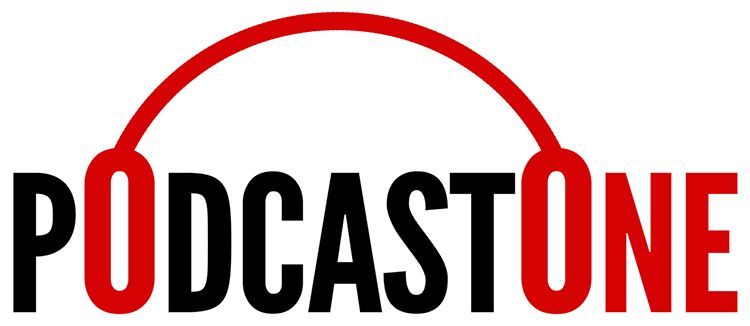
Weekly Roundup: January 25-29, 2021

John Kamensky
Who’s in Charge? Federal News Network posts a real-time guide to top agency leadership positions – confirmed and acting.
Performance Data. Federal News Network reports: “When the Biden administration issues its first budget proposal in the coming weeks, agencies will come prepared with performance data to justify how they will spend that money. . . . That has been the expectation for decades under the Government Performance and Results Act (GPRA), but a last-minute memo from the Trump administration created some uncertainty about this process when the Office of Management and Budget removed key guidance from its A-11 Circular. . . . In the final week of the Trump administration, however, OMB issued a second memo, clarifying that agencies should still measure and track program performance data as required by GPRA.”
Opportunity Knocks? In an op-ed for Government Executive, Andy Feldman and Kathy Stack write about the Trump Administration’s last-minute deletion of performance reporting requirements from agency budget guidance, noting that “The White House should go beyond simply reversing what the previous administration did and use data to improve outcomes through true results-driven governance.” They offer four specific steps.
Federal Financial Data Sets. FedScoop reports: “The Treasury’s one-stop shop for data about federal finances has added six datasets since its launch last summer, with plans for a couple more additions in the next few months. . . . Fiscaldata.treasury.gov started with 18 datasets in July and is now up to 24 as the Bureau of Fiscal Service works to add all of its public-facing data to the site — potentially doubling the number of initial datasets.
IRS Appoints Chief Taxpayer Experience Officer. NextGov reports: “The IRS Tuesday announced the creation of a new chief taxpayer experience officer position as part of its planned multiyear modernization effort. . . . Ken Corbin will take on the new role while continuing to serve as the commissioner of the IRS Wage and Investment division—the agency’s largest.
Agencies to Appoint Chief Scientists. NextGov reports: “The Biden White House is doubling down on scientific and data-based efforts from the last two administrations with a new order on scientific integrity. . . . The presidential memo, signed Wednesday by President Joseph Biden, . . . looks to inject more science and data into the policymaking process and, conversely, ensure “findings should never be distorted or influenced by political considerations.” That will be accomplished through the establishment of new policies, frameworks, guidance documents and a White House-level task force, as well as a new position for many federal agencies: chief science officer.”
Michael Keegan
Pandemic response drives DOD's sharp uptick in OTA spending. The Defense Department issued an unprecedented $16 billion in other transaction agreements in 2020, half of which was dedicated to its response to the coronavirus pandemic, according to the Defense Pricing and Contracting Agency annual report. DOD's use of OTA's more than doubled from $7.4 billion in 2019 to $16.3 billion in 2020 -- $7.7 billion related to COVID-19, according to the report released Jan. 28. Other transaction agreements are a relatively new authority that allows for faster acquisitions and are typically used to attract startups and non-traditional companies to do business with DOD. Just six years ago, in 2015, DPC issued $620 million in other transaction agreements.
Can better data improve federal hiring? Only 53% of these self-assessments result in a job offer. Last year, then President Donald Trump issued an executive order that instructed agencies to reform hiring standards for competitive positions. A section of the order called on agencies not to rely solely on self-evaluations. So far, the order is still in place. "We want to improve those numbers," said Amy Paris, a product manager and digital service expert at United States Digital Service (USDS) who helped collect the data for the new interactive report. "How do we do that? There's data that can help us figure out."
GAO says State Dept. can't justify move to open cyber office. GAO says the State Department set up its new bureau focused on cyberspace and emerging technology without sufficiently justifying its decisions with data or evidence. Responding for the State Department, Jeffrey Mounts, the agency's comptroller, said the GAO report did not consider any of the alternative options the agency had presented to auditors. "The draft report does not examine these options in detail but rather focuses on the option choice chosen to create CSET," he wrote. He also said the department's office of the cyber coordinator since 2011 has informally reported to the undersecretary for arms control and international security and did not experience the challenges GAO described from reporting to two different senior officials.
How Thinking Like a Startup Helps Governments Solve More Problems. Public entrepreneurship can bring agile thinking and new ideas to governments. Mitchell Weiss explains how in his new book, We the Possibility.
How to Develop Mental Toughness. Mental toughness is the ability to stay focused on solutions, especially in the face of adversity. After years of studying highly successful individuals, the quality observed in them that allows them to achieve such greatness is their ability to keep their focus on solutions, rather than the normal problem-centric way of thinking.
5 ways leaders can help their successors, Leaving an old role ideally means you've left a good foundation for your successor, especially in terms of institutional knowledge, networking and the team's talents, writes Alaina Love. If possible, have this person shadow you to "provide firsthand insight about what to expect once in the role," she writes. SmartBrief/Leadership
Why it takes curiosity and support to innovate. Curiosity is the root of innovation, but collaboration and corporate support are necessary for ideas to become realities, writes Kristiina Hiukka. "There is a vast difference between posting a motivational slogan for innovation and implementing practices that support innovation," she writes. Real Leaders
Think through problems before taking action. Problem-solving often benefits from taking time to examine and investigate, because if "you had all the information to permanently solve a problem the problem wouldn't exist in the first place," writes Steve Keating. He shares a seven-step problem-solving framework, emphasizing No. 4, which involves uncovering root causes. LeadToday
These 5 leadership habits are holding you back. Replace old habits of relentless work, thinking you know more than others, relying on your authority and avoiding risk with new habits of reflection, collaboration, shared power and experimentation, writes leadership development CEO Dede Henley. "To keep up and stay competitive in a rapidly changing, ever-more-complex world, businesses need to change how they operate, and that means leaders must adapt their own behaviors as well," she writes. Chief Learning Officer online
* * * * * *
Next Week on The Business of Government Hour: Conversation with Scott Cameron, forming Acting Assistant Secretary for Policy, Management and Budget, U.S. Department of the Interior. How has the U.S. Department of the Interior used Shared Services? What are some of the critical challenges facing the application and use of shared services across the U.S. federal government? What are the most effective ways to maintaining momentum on shared services from one administration to the next? Join Michael Keegan as he explores these questions and more with Scott Cameron, forming Acting Assistant Secretary for Policy, Management and Budget, U.S. Department of the Interior next week on The Business of Government Hour.
Broadcast Schedule: The show airs Monday at 11 a.m., and Friday at 1 p.m. on Federal News Network 1500AM WFED
Anytime, Anywhere on . . . .
https://www.podcastone.com/the-business-of-government-hour
https://itunes.apple.com/us/podcast/the-business-of-government-radio-hou





